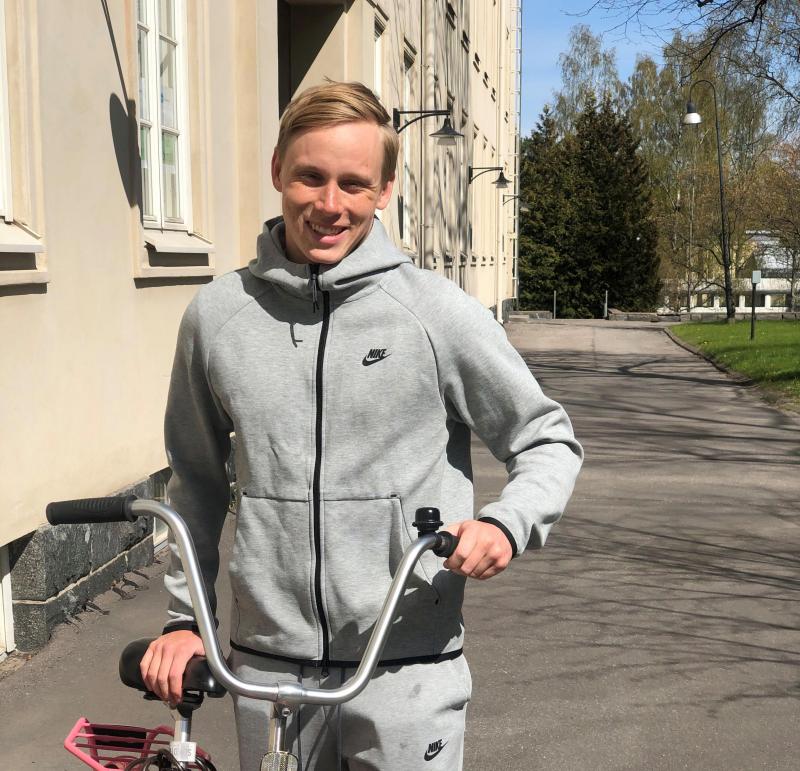New roles: A talent pool balanced out the workloads
When the coronavirus restrictions were applied to services in the spring and later towards the end of the year, many of our employees no longer had work. However, through our talent pool we were able to transfer them temporarily to other duties, which also allowed us to avoid furloughs.
In the spring and at the end of the year, the City suspended many of its services, causing some of the staff members to experience a temporary reduction in their duties. However, at the same time, new services were being created and more employees were needed to provide these services.Therefore, we launched a talent pool, which helped us allocate staff members to areas with the most critical needs. This allowed us to avoid furloughing our staff.
For example, the Social Services and Health Care Division required more employees, because the City had introduced new coronavirus health stations and an extensive track and trace service. The City also had to prepare for a significant increase in patient numbers.
Furthermore, the need for added resources also became apparent in the City Executive Office, when paying out subsidies for the self-employed and organising mobile coronavirus advice, as well as in the Service Centre, when providing remote care.
Joining the Helsinki-apu service
In the spring, the amount of work available reduced in the Culture and Leisure Division in particular, and staff from there transferred over to Helsinki-apu. As a matter of fact, this division, together with Helsinki Parish Union, played a key role in the newly-founded Helsinki-apu service.
This service allowed us to reach elderly residents of Helsinki and offer them help with shopping.
The number of children attending daycare was also significantly reduced in the spring, due to which we reallocated daycare centre staff with qualifications in the social and health care sector to help out with the sector’s work with the elderly.
Towards the end of the year, staff members from the Culture and Leisure Division were reallocated to the track and trace service, assistant roles in the care sector, and daycare centres, in particular. The Social and Health Care Division in particular saw a lot of internal transfers.
Over the year, the total number of transfers was 1,637, and most of the people were reallocated to duties within their division, municipal enterprise or agency. The number of staff members reallocated to other organisations was 382.
Thanks to our talent pool, we were able to redistribute some of the workload in the critical areas. The exceptional times also provided staff members who were transferred to new duties with an opportunity to learn about the City’s operations in another unit, thereby increasing their skill sets and knowledge of the City.
We gathered feedback on the talent pool over the summer and made some changes the following autumn. In the spring, we collected information about the staff members to be transferred from the staff themselves, while in the autumn the information came from the supervisors.
For the most part, the transfers took place according to the rights granted to supervisors by the collective agreements, which meant that new contracts were not signed and instead the employees were temporarily reallocated to alternative duties.
Staff transfers in 2020
| Internal transfers | Transfers between divisions | |
|---|---|---|
| Education Division | 0 | 230 |
| City Executive Office | 0 | 17 |
| Urban Environment Division | 3 | 3 |
| Culture and Leisure Division | 375 | 116 |
| Service Centre | 30 | 11 |
| Social Services and Health Care Division | 847 | 5 |
| Total | 1,255 | 382 |
Focusing resources makes sense
Rasmus Ruismäki transferred from early childhood education and care to Laakso Hospital and told us about his experiences in the summer:
‘I am glad that the City of Helsinki offers the option of alternative duties. I think it is prudent to focus nursing staff where they are needed the most.
The situation is new and challenging for everyone, but despite that the staff work extremely well together.
‘I received a good induction to being a practical nurse on an infectious diseases ward, and I have been able to use my skills in acute medicine that my paramedic studies and work experience have given me.
‘At Laakso Hospital, there are always doctors, nurses, physiotherapists and other professionals around, and help and guidance is available whenever you need it.
‘My role involves basic patient care, wound treatment and, due to the pandemic, plenty of dressing up in PPE.
‘The situation is new and challenging for everyone, but despite that the staff work extremely well together.
‘While carrying out alternative duties, I have learnt a lot about various illnesses and their treatment. The things I am learning here will help me with my future studies in the social and health care sector.’

